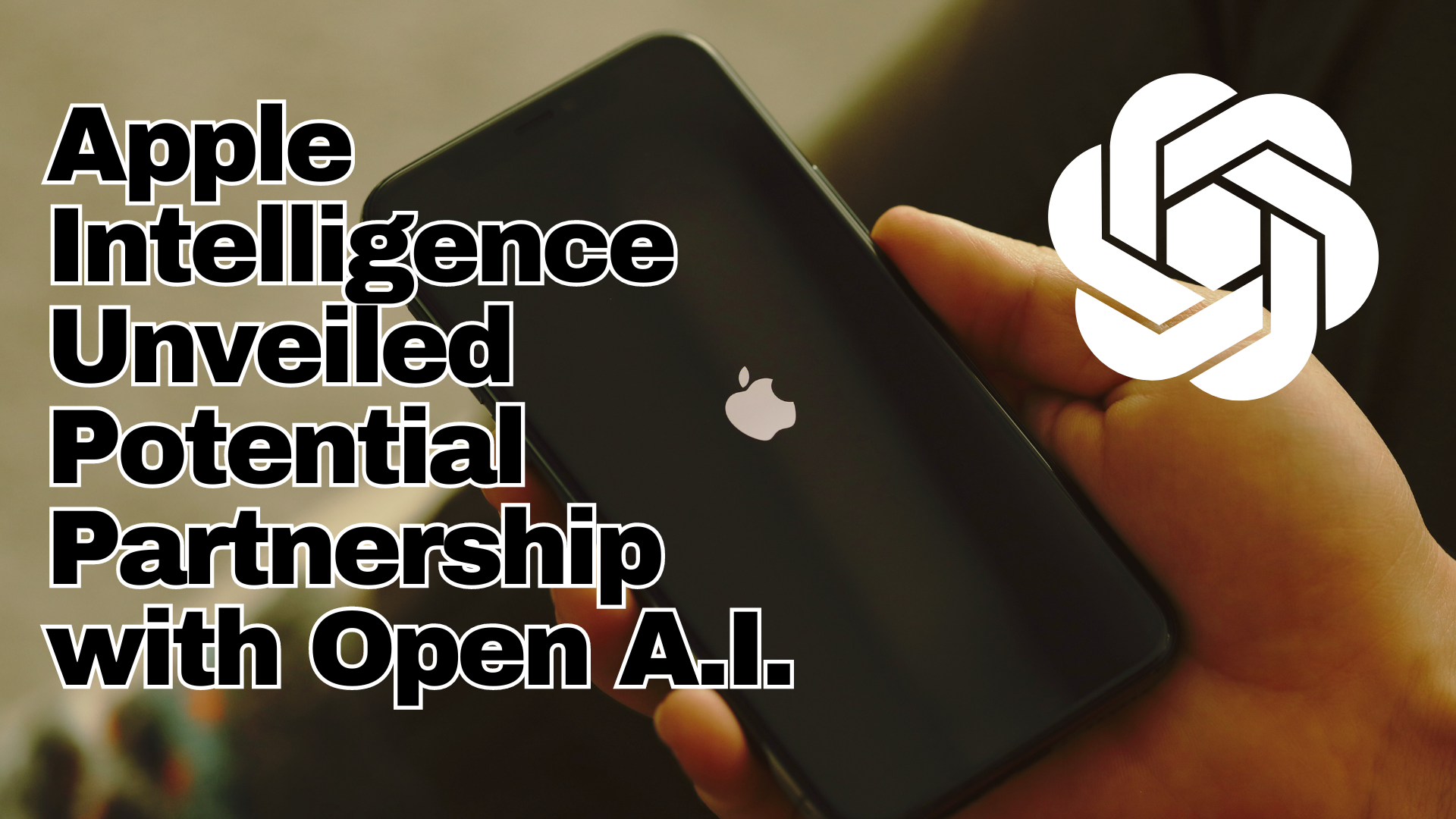Apple’s Pursuit Of Apple Intelligence
In recent years, Apple Inc. has rapidly accelerated its efforts in the field of artificial intelligence (AI), striving to integrate cutting-edge technology into its vast ecosystem of products and services.
- “Apple Intelligence will transform what users can do with our products” – Tim Cook
For Apple, integrating OpenAI’s sophisticated language models could enhance Siri’s capabilities, making it a more intuitive and responsive virtual assistant.
There are fears that integrating OpenAI’s models into Apple products might necessitate access to unprecedented amounts of personal data, raising questions about consent and data security.
Both companies are under scrutiny for how they handle user data and privacy—a fundamental aspect of their business operations that has far-reaching implications.
Apple’s pursuit of AI can be traced back to its early endeavors with Siri, the voice-activated personal assistant introduced in 2011. Since then, Apple has continually refined Siri’s capabilities, leveraging machine learning algorithms to improve accuracy and responsiveness.
How Apple Artificial Intelligence Plays into Siri
Siri represents just the tip of the iceberg when it comes to Apple’s broader AI ambitions.
The company has been discreetly building an extensive portfolio into AI technologies which they call, “Apple Intelligence“. That span various domains such as computer vision, natural language processing, and predictive analytics.
Apple’s approach to AI is fundamentally rooted in privacy-centric principles—a distinctive stance compared to many competitors who rely heavily on cloud-based data processing.
By prioritizing on-device computation and data minimization techniques, Apple aims to deliver intelligent features without compromising user privacy.
A first look at Apple Intelligence on iOS 18.
The animation looks soooo amazing 🤯 pic.twitter.com/RubbDBp7YG
— Beta Profiles (@BetaProfiles) June 17, 2024
- As Apple continues its race towards greater AI integration.
This relentless pursuit also raises profound ethical considerations that warrant careful examination as Apple explores potential collaborations with entities like OpenAI
Apple’s Current Artificial Intelligence Capabilities
Apple has long been at the forefront of integrating artificial intelligence (AI) into its ecosystem, consistently enhancing user experience through innovative applications. The company’s AI capabilities span a wide range of functionalities, from voice recognition to advanced imaging technologies. One of the most prominent examples is Siri, Apple’s intelligent personal assistant, which leverages natural language processing and machine learning to offer personalized and context-aware responses.
Over time, Siri has evolved to provide more accurate and nuanced interactions, embodying Apple’s commitment to refining its AI offerings.
In addition to Siri, Apple has made significant strides in other areas such as computer vision and augmented reality (AR). The introduction of the A-series chips in iPhones and iPads has allowed for on-device AI processing, thereby improving performance while maintaining user privacy.
Unlike many tech giants that rely heavily on cloud-based AI services which can pose significant privacy risks, Apple ensures that much of its AI computation happens locally on devices.
As Apple continues its pursuit in the realm of artificial intelligence, it remains committed to developing technologies that are both cutting-edge and ethically sound.
While Apple Focus on AI It turns away from products Like apple car vision pro and pay later
The Apple products team is shifting focus. Currently Pay Later is being scrapped, the 3,500 dollar Apple Vison Pro are being put on the back burner, and the Apple Car is only a dream. Cook wants to focus on the tangible, which ironically is Artificial Intelligence.
While Apple initially created buzz around products such as the Apple Car, Vision Pro, and the Apple Pay Later service, it seems the company is now placing a stronger emphasis on artificial intelligence (AI).
Apple Pay Later, which allowed consumers to make purchases and pay for them over time, appeared to be a strategic move into the burgeoning “buy now, pay later” market. However, the rapid advancement and potential of AI technologies are reshaping priorities for many tech giants, including Apple.
Here are a few factors possibly driving this shift:
1. Market Potential and Growth:
2. Strategic Focus: AI can enhance existing Apple products; iPhones, Apple Watches, and Macs
3. Competitive Edge:
4. Infrastructure and Investment: Resources that might have gone into products like Apple Car or financial services can be reallocated to more promising AI developments.
5. Consumer Trends: Users increasingly expect more intelligent, seamless experiences with their devices, thereby improving user satisfaction.
While it’s possible that AI has taken precedence over certain hardware projects and financial services like Apple Pay Later, this doesn’t necessarily mean Apple is abandoning those areas completely.
Ethical Concerns Surrounding Apple x Open AI Partnership
There are fears that integrating OpenAI’s models into Apple products might necessitate access to unprecedented amounts of personal data, raising questions about consent and data security.
Additionally, there are broader societal implications to consider as well: how will this partnership impact employment within tech industries?
Could it exacerbate existing biases within AI systems?
These ethical dilemmas underscore the importance of establishing robust frameworks to ensure responsible development and deployment of AI technologies as both companies navigate this promising yet complex collaboration




